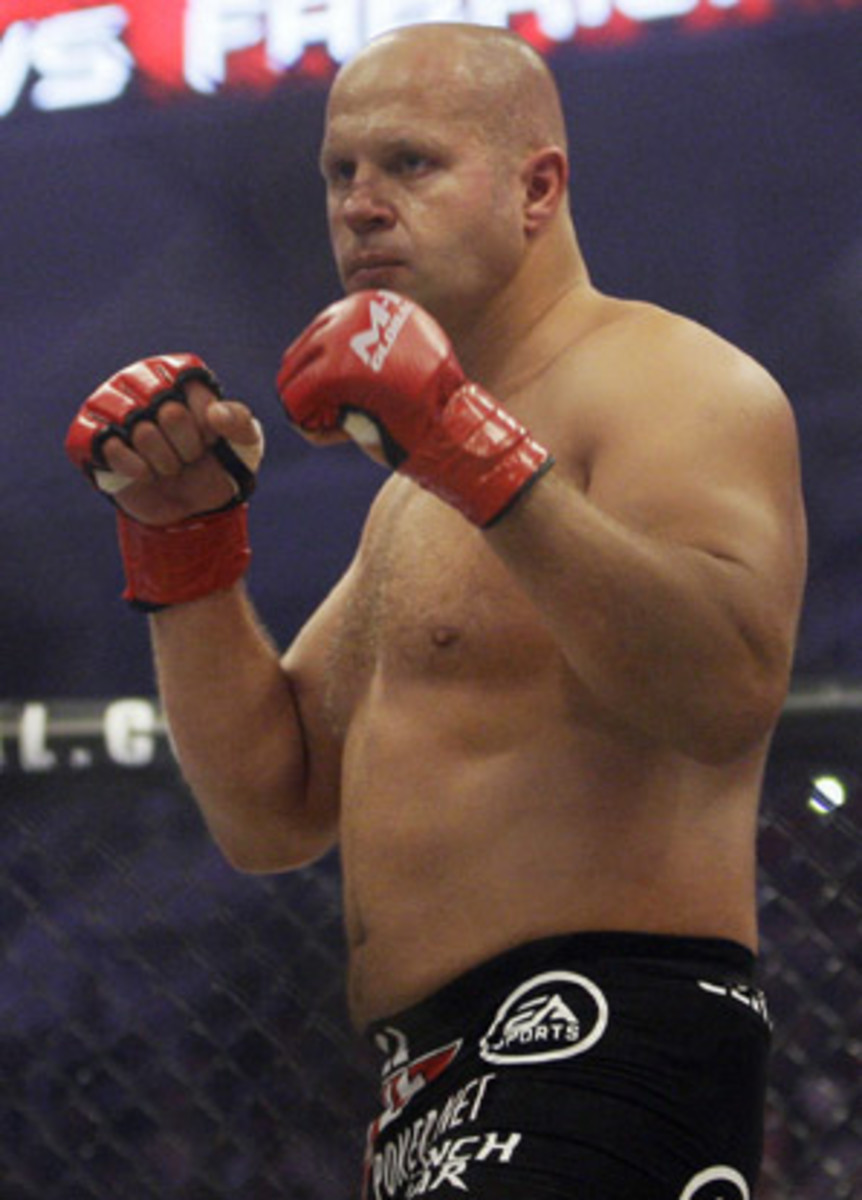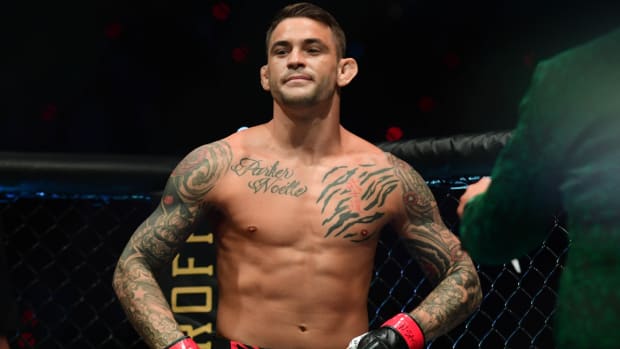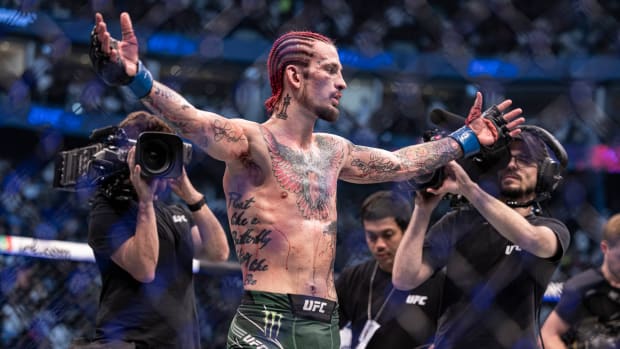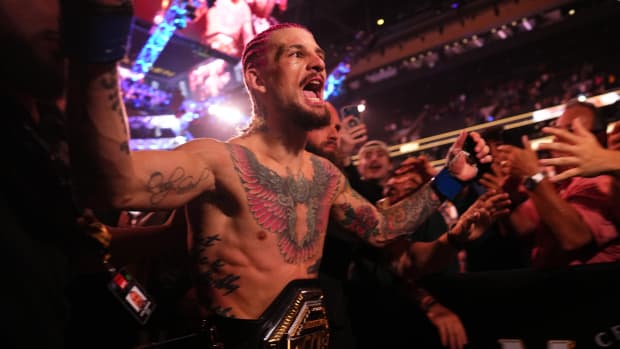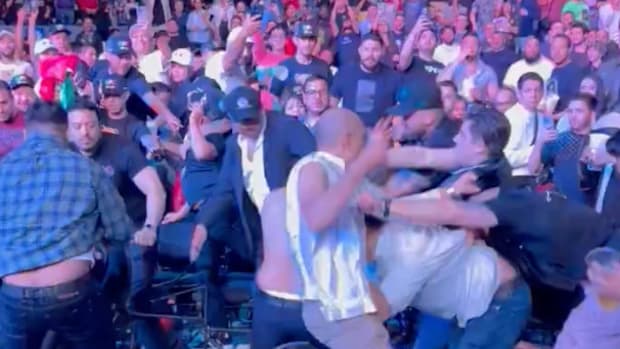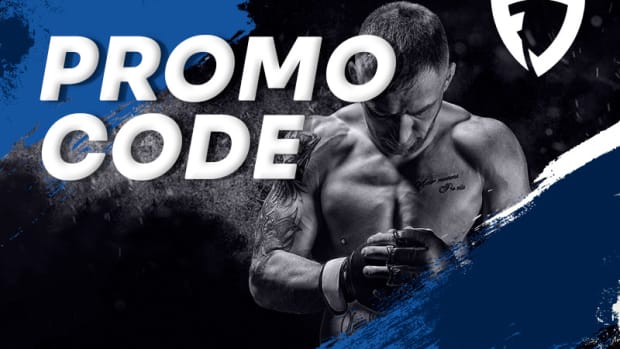Fedor stayed true to his no-frills character during legendary career
A few years ago I came down with a nasty case of MMA Fever. I got drawn in by it all -- the rawness, the exotica, the candor of the fighters, the clash of styles, the marriage of violence and nuance, the spike of adrenaline that came with watching a live event. The level of my intoxication was such that I wrote a book about the sport. As I began my research, I was told multiple times, "You have to watch Fedor."
Easier said than done. Fedor Emelianenko was sport's abominable snowman.
He was discussed with a sense of awe, hushed tones coming over even the loudest voices when his name was discussed. He was, for intents, undefeated, generally regarded as the best fighter alive -- which given the life span of the sport, meant the best fighter ever. He hadn't just been a champion in the PRIDE promotion; he had cleaned out entire divisions. Like most Russians, he'd been weaned on Sambo. But he possessed a vast and diverse portfolio of skills.
But, damn, he was hard to pin down. Even in a sport in which athletes are delightfully accessible -- "I'm an open book," even the most decorated champions will tell you -- Fedor was a mystical mystery man, unknown and unknowable. For one, he looked more like a village butcher than a champion fighter, with his pudgy, uncannily round head and receding hairline. His physique wasn't sculpted and defined the way other fighters' bodies were. Other fighters were making cameos in movies, launching their own websites, angling for a coaching role in the The Ultimate Fighter (TUF) reality show -- riding the wave, quite understandably, of this surging sport.
Fedor? He was off in Russia, training in his village. He seldom gave interviews. When he did, they were in Russian. He wasn't disdainful of hype so much as he was indifferent.
His aura of enigma was made all the more pronounced by his refusal to fight in the UFC, the dominant promotion. How could he be the best pound-for-pound fighter in the world when he wasn't fighting the best competition? And in a sport turbocharged by pride (pardon the pun), how could he be content fighting anyone other than the best in inferior promotions? As Randy Couture then Brock Lesnar and then Cain Velasquez would take ownership of the UFC heavyweight division, the question inevitably became: "How would they fare against Fedor?" For all the rumors that he was being either desperately pursued by the UFC or that his management was desperately begging for a fat contract, it never came to pass.
He was fighting and winning, extending his winning streak. But it was hard to extract much meaning, given the competition. While the UFC had a momentum all its own, Fedor was off fighting a well-beyond-his-prime Matt Lindland in St. Petersburg, a little-known Korean fighter in Japan. He was off playing the backwaters and didn't need the arena shows. That's fine when you're in an alternative band; but it's problematic in competitive sport.
I finally got my audience with Fedor last month in New York. He was here to compete in the Strikeforce Heavyweight World Grand Prix, an event that mimics Showtime's tournament in boxing. The Mighty Fedor had lost his previous fight -- having made a careless mistake against Brazilian Fabricio Werdum -- but that was being spun as a fluke. He was the unmistakable headliner for the tournament, the man whose benign face graced billboards and bus ads.
In advance of the event, fighters were being put through their promotional paces, ringing the Wall Street bell, holding open training sessions and, of course, consenting to interviews. A disproportionate burden fell on Fedor. I met him in a swank and strenuously hip Midtown hotel, a place totally at odds with his lack of pretense. He wore a hoodie, jeans and the grouchy look of a fighter in the days before combat. Then he answered the questions.
Get a load of these answers:
Why is he still fighting?
"I would like people to stop and to think a little bit. Maybe to change something in themselves. I would like people to treat each other with more kindness and patience."
What does he think of Dana White?
"The main thing for him is his business and because of that, he often crosses the line. Sometimes, he doesn't notice people, their needs, their feelings. And sometimes he seems to lose the respect to people, because of being blind to business purposes."
If he loses?
"It's God's will for everything so I accept the Fates the way they are."
A few nights later, Fedor didn't merely lose. He was beaten brutally by Antonio Silva, a mountainous Brazilian. Silva used his extraordinary size advantage to mount Fedor and dispense all sorts of punishment until the fight was, mercifully, stopped.
Fedor's management -- i.e. the guys whose faces aren't sliced up, whose bones aren't getting displaced -- spun this as a minor setback. And it's the rare fighter who doesn't overstay his welcome in the sport. But Fedor is the rare fighter. He needs neither the money, the glory nor the trappings of fame. And if he were an incurable egomaniac, he would have been fighting in a steel Octagon, under pulsating neon lights years ago.
Even if that wasn't his last fight, he's a different man from the champion who went undefeated for more than a decade. As Sam Sheridan wrote in his brilliant book "The Fighter's Mind" (a must-read for combat sports fans): "The fighter has lost a part of himself, the part that believed in his own power and invincibility ... Your ability to make decisions, to master your own fate is destroyed when you lose a fight. You've been dominated, and to a male of the species, there is nothing worse. It violates every principle in your body."
This passage seemed especially relevant as the Great Fedor was bloodied and humiliated in the Strikeforce arena, headed to a nearby hospital.
Regardless of whether we see him again, Fedor makes it to the Mt. Olympus of MMA. Here's how you'll identify him: he'll be the guy you won't immediately recognize.
